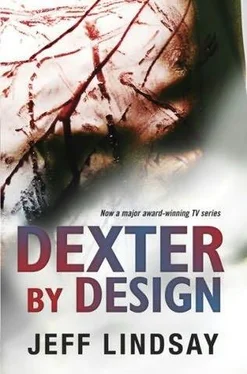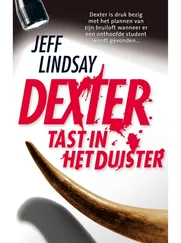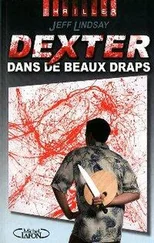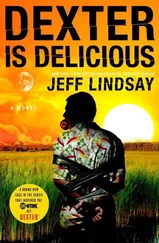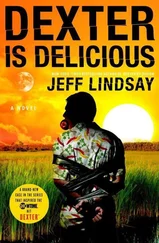“How is she?” I asked him.
He looked down the hall toward where they were taking my sister, then back at me. “Who are you?” he asked.
“Her brother” I said. “Is she going to be all right?” He gave me half a not-funny smile. “It's much too soon to tell” he said. “She lost an awful lot of blood. She could be fine, or there could be complications. We just don't know yet.”
“What kind of complications?” I asked. It seemed like a very reasonable question to me, but he blew out an irritated breath and shook his head.
“Everything from infection to brain damage” he said. “We're not going to know anything for a day or two, so you're just going to have to wait until we do know something, okay?” He gave me the other half of the smile and walked away in the opposite direction from where they had taken Deborah.
I watched him go, thinking about brain damage. Then I turned and followed the gurney that had carried Deborah down the hall.
There were so many pieces of machinery around Deborah that it took me a moment before I saw her in the middle of the whirring, chirping clutter. She lay there in the bed without moving, tubes going in and out of her, her face half covered by a respirator mask and nearly as pale as the sheets. I stood and looked for a minute, not sure what I was supposed to do. I had bent all my concentration on getting in to see her, and now here I was, and I could not remember ever reading anywhere what the proper procedure was for visiting nearest and dearest in the ICU.
Was I supposed to hold her hand? It seemed likely, but I wasn't sure, and there was an IV attached to the hand nearest me; it didn't seem like a good idea to risk dislodging it.
So instead I found a chair, tucked away under one of the life support machines. I moved it as close to the bed as seemed proper, and I settled down to wait.
After only a couple of minutes there was a sound at the door and I looked up to see a thin black cop I knew slightly, Wilkins. He stuck his head in the door and said, “Hey, Dexter, right?” I nodded and held up my credentials. Wilkins nodded his head at Deborah.
“How is she?”
“Too soon to tell” I said.
“Sorry, man” he said, and shrugged. “Captain wants somebody watching, so I'll be out here.”
“Thank you” I said, and he turned away to take up his post at the door.
I tried to imagine what life would be like without Deborah. The very idea was disturbing, although I could not say why. I could not think of any huge and obvious differences, and that made me feel slightly embarrassed, so I worked at it a little harder. I would probably get to eat the coq au vin warm next time. I would not have as many bruises on my arms without her world-famous vicious arm punches. And I would not have to worry about her arresting me, either. It was all good —why was I worried?
Still, the logic was not terribly convincing. And what if she lived but suffered brain damage? That could very well affect her career in law enforcement. She might need full-time care, spoonfeeding, adult diapers —none of these things would go over well on the job. And who would do all the endless tedious drudgery of looking after her? I didn't know a great deal about medical insurance, but I knew enough to know that full-time care was not something they offered cheerfully. What if I had to take care of her? It would certainly put a large dent in my free time. But who else was there? In all the world, she had no other family. There was only Dear Dutiful Dexter; no one else to push her wheelchair and cook her pablum and tenderly wipe the corners of her mouth as she drooled. I would have to tend to her for the rest of her life, far into the sunset years, the two of us sitting and watching game shows while the rest of the world went on its merry way, killing and brutalizing each other without me.
Just before I sank under a huge wave of wet self-pity I remembered Kyle Chutsky. To call him Deborah's boyfriend was not quite accurate, since they had been living together for over a year, and that made it seem like a bit more. Besides, he was hardly a boy. He was at least ten years older than Debs, very large and beat-up, and missing his left hand and foot as the result of an encounter with the same amateur surgeon who had modified Sergeant Doakes.
To be perfectly fair to me, which I think is very important, I did not think of him merely because I wanted someone else to take care of a hypothetically brain-damaged Deborah. Rather, it occurred to me that the fact she was in the ICU was something he might want to know.
So I took my cell phone from its holster and called him. He answered almost immediately.
“Hello?”
“Kyle, this is Dexter” I said.
“Hey, buddy” he said in his artificially cheerful voice. “What's up?”
“I'm with Deborah” I said. “In the ICU at Jackson.”
“What happened?” he asked after a slight pause.
“She's been stabbed” I replied. “She lost a lot of blood.”
“I'm on my way” he announced, and hung up.
It was nice that Chutsky cared enough to come right away.
Maybe he would help me with Deborah's pablum, take turns pushing the wheelchair. It's good to have someone.
That reminded me that I had someone —or perhaps I was had.
In any case, Rita would want to know I would be late, before she cooked a pheasant souffle for me. I called her at work, told her quickly what was up, and hung up again as she was just getting started on a chorus of Oh-My-Gods.
Chutsky came into the room about fifteen minutes later, trailed by a nurse who was apparently trying to make sure he was perfectly happy with everything from the location of the room to the arrangement of IVs. “This is her,” the nurse said.
“Thanks, Gloria” Chutsky said without looking at anything but Deborah. The nurse hovered anxiously for a few more moments, and then vanished uncertainly.
Meanwhile, Chutsky moved over to the bed and took Deborah's hand —good to know I had been right about that; holding her hand was, indeed, the correct thing to do.
“What happened, buddy?” he said, staring down at Deborah.
I gave him a brief rundown, and he listened without looking at me, pausing in his hand-holding briefly to wipe a lock of hair away from Deborah's forehead. When I had finished talking he nodded absently and said, “What did the doctors say?”
“It's too soon to tell” I said.
He waved that away impatiently, using the gleaming silver hook that had replaced his left hand. “They always say that” he said. “What else?”
“There's a chance of permanent damage” I said. “Even brain damage.”
He nodded. “She lost a lot of blood” he said, not a question, but I answered anyway. “That's right,” I said.
I have a guy coming down from Bethesda” Chutsky said. “He'll be here in a couple of hours.” I couldn't think of very much to say to that. A guy? From Bethesda? Was this good news of some kind, and if so, why?
I could not come up with a single thing to distinguish Bethesda from Cleveland, except that it was in Maryland instead of Ohio.
What kind of guy would come down from there? And to what end? But I also couldn't think of any way to frame a question on the subject. For some reason, my brain was not running with its usual icy efficiency. So I just watched as Chutsky pulled another chair around to the far side of the bed, where he could sit and hold Deborah's hand. And after he got settled, he finally looked directly at me. “Dexter” he said.
“Yes,” I said.
“Think you could scare up some coffee? And maybe a doughnut or something?”
The question took me completely by surprise —not because it was such a bizarre notion, but because it seemed like one to me, and it really should have been as natural as breathing. It was well past my lunchtime, and I had not eaten, and I had not thought of eating.
Читать дальше
